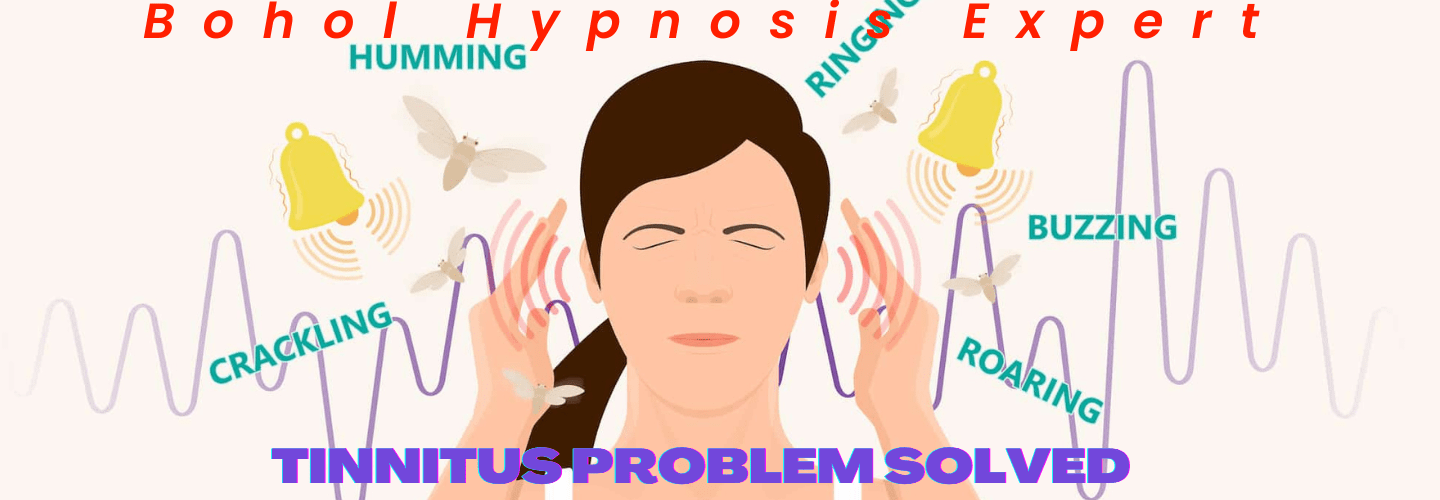
Addressing the innate fear of death, hypnosis, EFT, and NLP offer powerful tools to potentially overcome this intimidating phobia. Hypnotherapy provides non-invasive anxiety relief, EFT involves tapping on meridian points, while NLP reframes perceptions and responses. Trained practitioners facilitate the development of new coping mechanisms. Success stories highlight the transformative power of these modalities on emotional well-being. Embracing these techniques can lead to a profound shift in overall mindset and well-being. Learning more about how these tools work could offer valuable insights and guidance in confronting the fear of death.
Understanding the Fear of Death
In the domain of mental health, understanding the fear of death is a vital exploration that delves into the core of human existential concerns. Fear psychology plays a significant role in how individuals perceive and cope with the concept of mortality. The fear of death can manifest in various ways, from mild anxiety to debilitating phobias, impacting one's daily life and overall well-being.
Coping mechanisms are essential in addressing the fear of death. Individuals may employ strategies such as mindfulness practices, cognitive-behavioral techniques, or seeking support from mental health professionals to navigate their fears. By understanding the underlying causes of this fear, individuals can begin to develop healthier coping mechanisms that promote resilience and emotional well-being.
Exploring the fear of death requires a compassionate and practical approach that acknowledges the complexity of human emotions. Through introspection and self-awareness, individuals can gradually confront and work through their fears, paving the way for personal growth and a deeper understanding of life's transience.
Exploring Hypnosis for Anxiety

When anxiety becomes overwhelming, exploring hypnosis as a tool for relief can offer a path to a calmer mind.
Hypnotherapy has shown promising benefits in helping individuals manage their anxiety levels effectively.
Anxiety Relief Through Hypnosis
Exploring the potential of hypnosis as a tool for alleviating anxiety offers individuals a non-invasive and holistic approach to managing overwhelming feelings of distress and worry. Stress management becomes more attainable through hypnosis as it targets the root causes of anxiety, allowing individuals to develop coping mechanisms and relaxation techniques.
The mind-body connection is a key aspect of hypnosis for anxiety relief, as it focuses on reprogramming thought patterns and behavior responses to reduce stress levels. By tapping into the subconscious mind, hypnosis can help individuals address deep-seated fears and anxieties, promoting a sense of calm and control. Through guided sessions, individuals can learn to navigate their anxieties more effectively, leading to improved mental well-being and a greater sense of peace.
Benefits of Hypnotherapy
As individuals seek relief from anxiety, hypnotherapy emerges as a valuable tool for fostering a sense of calm and control by addressing deep-seated fears and anxieties. Hypnotherapy offers various benefits that can aid in stress management and confidence building:
- Stress management: Through hypnosis, individuals can learn relaxation techniques, reframe negative thought patterns, and develop coping mechanisms to manage stress more effectively.
- Confidence building: Hypnotherapy can help individuals boost self-esteem, increase self-assurance, and overcome limiting beliefs that may be hindering their confidence levels.
- Empowerment: By delving into the subconscious mind during hypnotherapy sessions, individuals can gain insights, clarity, and a sense of empowerment to confront and overcome their anxieties.
Unpacking Emotional Freedom Technique (EFT)

Emotional Freedom Technique (EFT) is a powerful tool that involves tapping on specific points of the body to address emotional distress. Understanding the EFT process overview, the benefits it offers, and its effectiveness in treating phobias are essential aspects of utilizing this technique.
EFT Process Overview
Understanding the core principles behind the Emotional Freedom Technique (EFT) can provide individuals with a structured approach to addressing emotional challenges and promoting overall well-being. EFT incorporates the following key elements:
- Meridian Points: EFT involves tapping on specific meridian points on the body to release energy blockages related to emotional distress.
- Affirmations: Utilizing positive affirmations during the EFT process helps reframe negative thought patterns and beliefs.
- Visualization: Incorporating visualization techniques enhances the effectiveness of EFT by creating a mental image of the desired emotional state.
Benefits of EFT
Employing the Emotional Freedom Technique (EFT) can lead to a multitude of benefits that enhance emotional well-being and foster personal growth.
EFT benefits individuals by facilitating emotional healing and empowerment. Through the practice of EFT, individuals can experience a transformation in their emotional state, allowing them to address and release deep-seated emotional issues.
This technique provides a practical and straightforward approach to working through emotional challenges, offering a sense of relief and clarity. By tapping into the body's energy system, EFT can help individuals release negative emotions, reduce stress, and promote overall well-being.
The benefits of EFT extend beyond momentary relief, offering individuals a tool for long-term emotional resilience and personal development.
EFT for Phobias
Individuals seeking relief from phobias can effectively utilize the Emotional Freedom Technique (EFT) as a practical and empowering tool for addressing deep-rooted emotional challenges. EFT techniques involve tapping on specific meridian points on the body while focusing on the phobia, which can help rewire the brain's response to that fear.
In phobia treatment, EFT can offer:
- A Simple Self-Help Tool: EFT provides individuals with a straightforward technique that they can learn and apply on their own to manage phobic responses.
- Emotional Regulation: Through EFT, individuals can learn to regulate their emotions when faced with phobic triggers, fostering a sense of control and empowerment.
- Long-Term Relief: Consistent practice of EFT techniques for phobia treatment can lead to long-lasting relief from the intense emotional responses associated with phobias.
Harnessing Neuro-Linguistic Programming (NLP)

Utilizing the principles of Neuro-Linguistic Programming (NLP) can provide individuals with effective tools to reframe their perceptions and responses towards the fear or phobia of death. NLP focuses on the connection between neurological processes, language, and behavioral patterns learned through experience, offering techniques for subconscious reprogramming. By engaging in NLP practices, individuals can address their fear of death by identifying and altering the thought patterns that contribute to this phobia.
NLP techniques often involve visualizations, language patterns, and sensory-based interventions to help individuals reframe their beliefs and responses to death-related stimuli. Through guided exercises and mental strategies, NLP facilitates a shift in perception, allowing individuals to view death from a different perspective.
Moreover, NLP can assist individuals in recognizing and modifying the deep-seated beliefs or traumas that underlie their fear of death. By working with a trained NLP practitioner, individuals can explore past experiences, understand the root causes of their phobia, and develop new coping mechanisms to manage their fear effectively. In this way, NLP serves as a valuable tool for transforming one's relationship with death and alleviating the associated anxieties.
Case Studies: Success Stories

Exploring real-life examples of individuals who have overcome their fear of death through the application of hypnosis, EFT, and NLP provides valuable insights into the transformative power of these techniques. Witnessing clients' testimonials and success rates can be truly inspiring, showcasing the profound impact these modalities can have on one's mindset and emotional well-being.
Here are some key elements that often emerge in these success stories:
- Client Testimonials: Reading or listening to firsthand accounts of individuals who have conquered their fear of death can instill hope and motivation in others facing similar struggles. These testimonials often highlight the personal journeys, challenges, and ultimate triumphs experienced by clients.
- Overcoming Obstacles: Success stories frequently depict the various obstacles and fears that clients had to confront on their path to healing. Through the guidance of skilled practitioners and the application of hypnosis, EFT, and NLP, individuals navigate these challenges and emerge stronger on the other side.
- Breakthrough Moments: Within these narratives, there are often pivotal moments where clients experience breakthroughs in their perceptions, beliefs, and emotions surrounding death. These breakthroughs mark significant turning points in their healing journey, leading to profound shifts in their overall well-being and mindset.
Integrating Modalities for Healing

In the domain of holistic healing approaches, the fusion of hypnosis, EFT, and NLP offers a comprehensive and effective strategy for addressing the fear or phobia of death.
Healing integration through these modalities allows individuals to explore deeply into their subconscious beliefs and emotions surrounding death, facilitating profound shifts in perception and behavior.
Hypnosis aids in accessing the subconscious mind, where entrenched fears often reside, enabling individuals to reframe negative thought patterns.
EFT, through its tapping techniques, helps release emotional blockages related to death anxiety, promoting emotional healing and resilience.
NLP techniques further enhance this process by reprogramming the mind to adopt empowering beliefs and responses towards mortality, fostering a sense of acceptance and peace.
Moving Towards Acceptance and Peace

Moving towards acceptance and peace involves embracing the inevitability of death with a sense of calm understanding and emotional resolution. It is a journey that requires introspection and a shift in perspective. Here are three key steps to guide you on this path:
- Reflect on Life: Take time to reflect on the meaningful moments, relationships, and experiences that have shaped your life. Acknowledge the beauty and significance of these moments, finding solace in the impact you have had on others and the world around you.
- Practice Mindfulness: Cultivate a practice of mindfulness to anchor yourself in the present moment. By focusing on the here and now, you can find tranquility and acceptance in the present reality, letting go of anxieties about the future or regrets about the past.
- Connect with Others: Seek support from loved ones or a therapist to share your feelings and fears about death openly. Building connections and fostering meaningful relationships can provide comfort and reassurance as you navigate your emotions towards acceptance and peace.
Frequently Asked Questions
Can Hypnosis, Eft, and NLP Be Used to Help With Other Types of Fears or Phobias Besides the Fear of Death?
Anxiety management and trauma healing can benefit from techniques like hypnosis, EFT, and NLP. These methods offer effective tools to address various fears and phobias beyond the fear of death, providing valuable support for individuals seeking relief.
Are There Any Potential Risks or Side Effects Associated With Using Hypnosis, Eft, or NLP for Overcoming Fear or Phobias?
While the utilization of hypnosis, EFT, and NLP for overcoming fears or phobias can be effective, it's essential to ponder potential risks and side effects. Safety concerns may involve heightened anxiety or unintended emotional responses, underscoring the requirement for skilled practitioners.
How Long Does It Typically Take to See Results When Using Hypnosis, Eft, and NLP for Fear or Phobia Resolution?
When seeking relief from fears or phobias, the duration to observe results varies based on individual factors. Techniques integrating mind-body connections can facilitate rapid anxiety relief. Consistent practice and professional guidance are key for effective outcomes.
Are These Techniques Suitable for Children or Adolescents Who Are Struggling With Fear or Phobias?
Child therapy for anxiety disorders in adolescents can be effective. Techniques like hypnosis, EFT, and NLP can be adapted to suit younger individuals. It's important to work with professionals experienced in child therapy to guarantee proper treatment.
Can These Modalities Be Used in Combination With Traditional Therapy or Medication for Addressing Fear or Phobias?
Alternative therapies like hypnosis, EFT, and NLP can complement traditional therapy and medication in addressing fear or phobias. Integrative approaches offer a holistic perspective, enhancing efficacy and potentially providing a more all-encompassing treatment plan for individuals seeking relief from these challenges.
Conclusion
In the symphony of healing modalities, hypnosis, EFT, and NLP harmonize to alleviate the fear of death. Like a skilled conductor guiding an orchestra, these techniques work together to address deep-seated anxieties and phobias.
Through the power of suggestion, tapping into emotions, and reprogramming thought patterns, individuals can find peace and acceptance. By integrating these modalities, one can journey towards a place of calm and tranquility in the face of mortality.
Take the Next Step
Do not be afraid to reach out to me, Mark E Wilkins, to assist you in any issues you might have. Most Hypnotherapy sessions last 2 hours and EFT Sessions are usually handled with one session. Life Coaching is 45 minute session, once a week. Self-Hypnosis is taught in one session, and lasts a lifetime.
To make an appointment, first listen to the Pre-talk and fill out he Complementary Healthcare Provider Disclosure. The use the Contact Form to request an appointment with the Bohol Hypnosis Expert.
Self-help downloads are available. The self-hypnosis program to teach you how to self-hypnotize is here.





